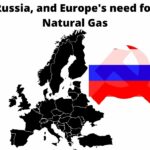Hillary Clinton is almost certainly going to run for President, and she’ll almost certainly be a polarizing figure. She may even win, but we have to be clear on a couple things: Hillary Clinton will be pushing fracking, not only in the U.S. but around the world. How do we know that? As Secretary of State, Hillary Clinton made it a high priority to push hydraulic fracking techniques into countries around the world, and John Kerry has continued that policy. I’ve covered this story on The Long Tailpipe before, and today Mother Jones Magazine published an interesting and in-depth article![]() detailing how Clinton’s State Department has become a tool of Western Oil Companies to start the process of deploying fracking technology into every frackable shale deposit around the world.
detailing how Clinton’s State Department has become a tool of Western Oil Companies to start the process of deploying fracking technology into every frackable shale deposit around the world.
I first learned of this last Winter when I began reading about, and writing about, the anti-fracking protests in Pungesti, Romania. Chevron had gotten rights from the Romanian government to begin exploratory drilling to determine the frackability of shale deposits in northern Romania, near the boarder with Moldova. However, the local population wanted nothing of that and had staged intense protests which caused the government to send in militarized police (Jendarmarie) to quash the protests.
With that as the starting point, my research opened a whole world of information in which not only is the State Department, the U.S. Congress, and others are working to export fracking technology to every frackable shale deposit in the world, but fracking Ukraine is seen as a key geopolitical lever against Russia’s ambition to dominate Europe.
The U.S. State Department has a program originally called the Global Shale Gas Initiative![]() and now called the Unconventional Gas Technical Engagement Program
and now called the Unconventional Gas Technical Engagement Program![]() whose purpose is “to help countries seeking to utilize their unconventional natural gas resources to identify and develop them safely and economically.” These programs were launched during Clintons time as Secretary of State, and have continued and strengthened during Kerry’s time.
whose purpose is “to help countries seeking to utilize their unconventional natural gas resources to identify and develop them safely and economically.” These programs were launched during Clintons time as Secretary of State, and have continued and strengthened during Kerry’s time.
The job of these programs is to facilitate countries around the world to allow hydraulic fracturing technology to be deployed. Primarily it’s the American oil companies who can frack, and therefore the job of this State Department program is to arrange meetings between Chevron, Exxon and Halliburton representatives and leaders of various countries.
The case of Ukraine fits into a broader picture about the geopolitical power balance between the U.S., European Union and Russia. The problem is that Europe doesn’t have much domestic fossil fuel resources, and has to import that stuff from elsewhere. A large part of Europe is highly dependent on Russia for natural gas. Russia, being Russia, is seeking to use that fact as leverage to dominate Europe.
Therefore the U.S. – according to a Congressional Research Service paper titled Europe’s Energy Security:Options and Challenges toNatural Gas Supply Diversification![]() – see’s Europes “energy security” as being in the U.S. National Interest. That’s an ominous phrase, because things that are described with that phrase often are the basis for launching a war. And, indeed, isn’t the U.S. on the verge of a war with Russia over control of the Ukraine?
– see’s Europes “energy security” as being in the U.S. National Interest. That’s an ominous phrase, because things that are described with that phrase often are the basis for launching a war. And, indeed, isn’t the U.S. on the verge of a war with Russia over control of the Ukraine?
Why Ukraine? This is a country with two very important assets. First, the bulk of the pipelines through which Russia sells natural gas to Europe flow through Ukraine. Second, there are significant frackable shale formations in Ukraine. Therefore, if Ukraine’s shale formations are fracked the natural gas could easily be sold to the rest of Europe, undermining Russia’s attempt to dominate Europe.
I don’t have 100% certainty/proof of this – but it seems that this geopolitical oil war scenario between Russia and the West is a major causation of the Ukrainian civil war underway. The West wants to wrest Ukraine out of the Russian sphere of influence, and use their frackable shale for their own ends. And Russia wants to keep Ukraine as a weak client state, dependent on Russia.
Those things are a taste of what the US State Department under both Hillary Clinton and John Kerry has been pushing on the world. But, why are they doing it?
That’s something covered by the Mother Jones article linked above. A key example of Clinton’s motivation is a speech she gave at Georgetown Univ in 2012, while still Secretary of State.
She said:
Energy cuts across the entirety of U.S. foreign policy. It’s a matter of national security and global stability. It’s at the heart of the global economy. It’s also an issue of democracy and human rights. And it’s been a top concern of mine for years, but certainly these last four years as Secretary of State, and it is sure to be the same for the next Secretary.
Hillary isn’t the first U.S. leader to say something of this sort, for example there’s the Carter Doctrine. She went on to outline three factors about Energy and America’s Foreign Policy:
It’s the “core of geopolitics, because fundamentally, energy is an issue of wealth and power, which means it can be both a source of conflict and cooperation”. The U.S. policy is to protect the free flow of access to “energy supplies” around the world, especially for America’s access to those energy supplies.
“Energy is essential to how we will power our economy and manage our environment in the 21st century.” In other words, fossil fuels are the engine that drives everything about the globalized economy, and without fossil fuels we don’t have a globalized economy.
“Energy is key to economic development and political stability,” by which she seems to mean to use “energy” access as a means to modernize the rest of the world’s countries.
This is an interesting perspective – the role of U.S. Foreign Policy is to ensure there’s a global market in “energy” which the U.S. can access. The purpose of this is to keep the game of modern civilization going, because modern civilization doesn’t exist if we don’t have fossil fuels.
She spent the rest of the speech giving examples from around the world. For example, Clinton flew into South Sudan to help negotiate understanding between North and South Sudan so that each country came to an agreement with the other, ending a war that prevented the oil in South Sudan from making it to market through the infrastructure located in North Sudan. Did she take that trip to stop a fight between countries, or was the purpose to ensure that oil resource was on the market? In other words, does the U.S. Foreign Policy care about the wellbeing of the Sudanese, or solely about ensuring we in the U.S. have gasoline?
Another thread of the speech is that the U.S. is making experts and expertise available to countries around the world to develop “energy” resources. What this means is oil company experts, primarily. And, increasingly that means companies with expertise in fracking.
The Mother Jones article goes on to discuss how the State Department has hosted conferences on fracking in countries all around the world, and hosted foreign delegations from around the world teaching them about the potential for fracking.
In part what’s motivating the work is a worldwide estimate of Recoverable Shale Oil and Shale Gas Resources around the world![]() , authored by the U.S. Energy Information Administration. By the way, the only method for recovering oil or gas from shale deposits is fracking.
, authored by the U.S. Energy Information Administration. By the way, the only method for recovering oil or gas from shale deposits is fracking.
This is the same Energy Information Administrated that estimated the Monterey Shale formation in California would be a mega-bonanza of oil and natural gas resources. Due to EIA’s estimate, the oil companies want to start fracking operations in California, despite a known connection between fracking and earthquakes (which should frighten every Californian). But recently the EIA released a revised estimate showing the recoverable resource to be a tiny smidgeon of what had been thought to be recoverable.
Similarly the EIA estimates of shale resources in Poland shrank from 187 trillion cubic feet to 1.3 trillion cubic feet, a 99 percent drop.
One wonders if the same pattern will hold true for the other shale deposits around the world?
Did I forget about Hillary Clinton in covering this other material? Nope. The point of covering this material is to make it clear the policy direction pushed by Mrs. Clinton. If she is elected President in 2016, we can expect more of the same during her Presidency.
But it might not matter who is President. The push for fracking around the world is much bigger than this one person, there’s a whole industry of people working on this.
- Highway design could decrease death and injury risk, if “we” chose smarter designs - March 28, 2015
- GM really did trademark “range anxiety”, only later to abandon that mark - March 25, 2015
- US Government releases new regulations on hydraulic fracturing, that some call “toothless” - March 20, 2015
- Tesla Motors magic pill to solve range anxiety doesn’t quite instill range confidence - March 19, 2015
- Update on Galena IL oil train – 21 cars involved, which were the supposedly safer CP1232 design - March 7, 2015
- Another oil bomb train – why are they shipping crude oil by train? – Symptoms of fossil fuel addiction - March 6, 2015
- Chevron relinquishes fracking in Romania, as part of broader pull-out from Eastern European fracking operations - February 22, 2015
- Answer anti- electric car articles with truth and pride – truth outshines all distortions - February 19, 2015
- Apple taking big risk on developing a car? Please, Apple, don’t go there! - February 16, 2015
- Toyota, Nissan, Honda working on Japanese fuel cell infrastructure for Japanese government - February 12, 2015























Pingback: Clinton says she’d essentially ban fracking, her record on promoting fracking says otherwise | The Long Tail Pipe